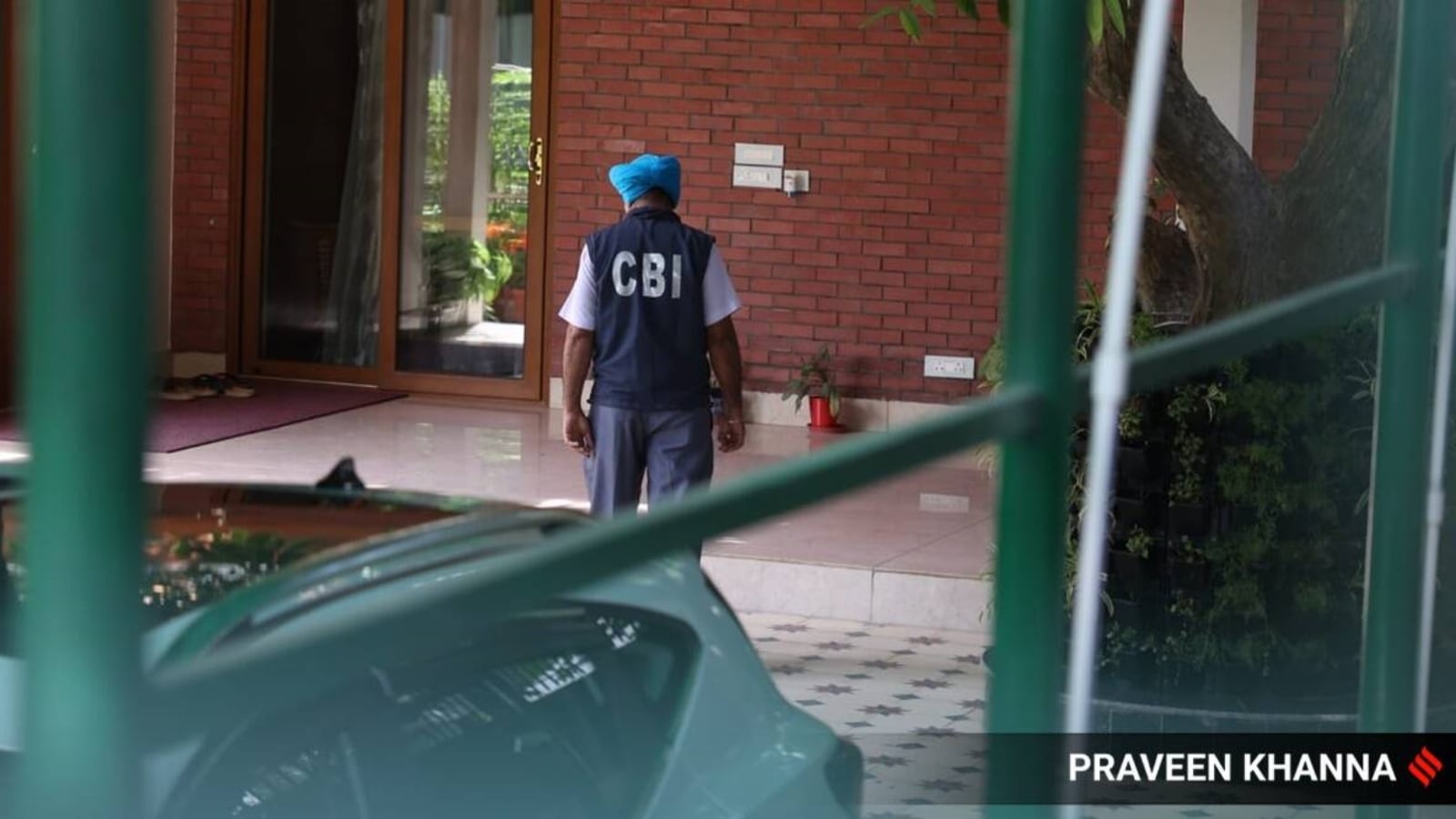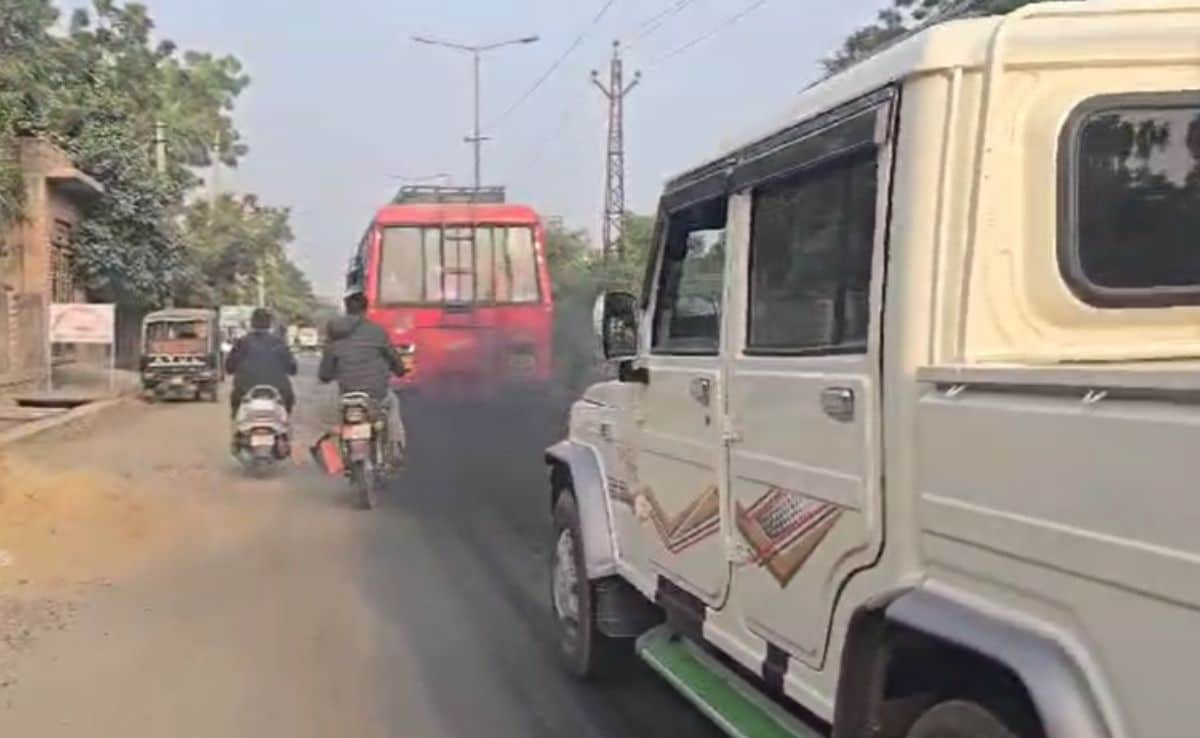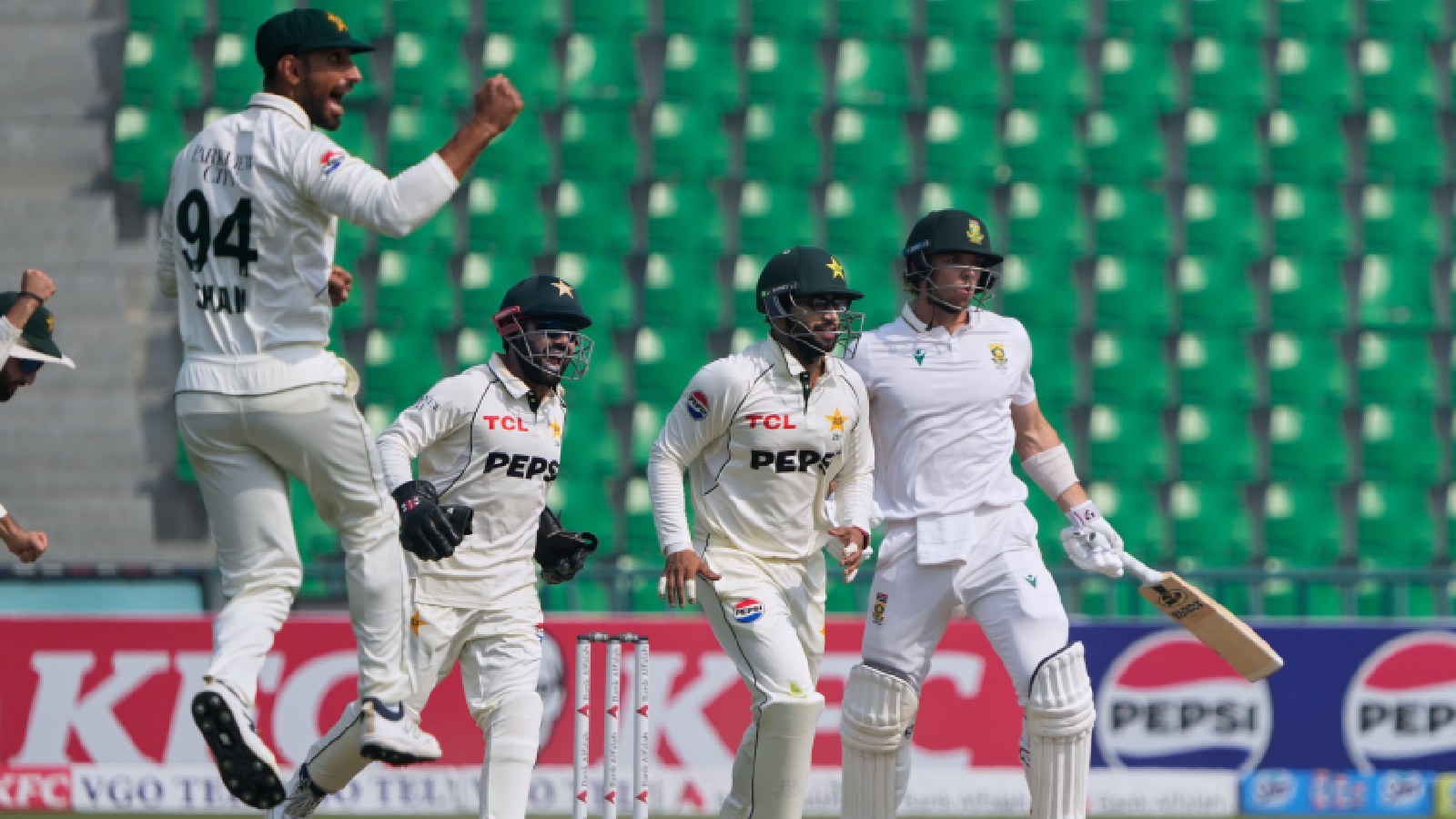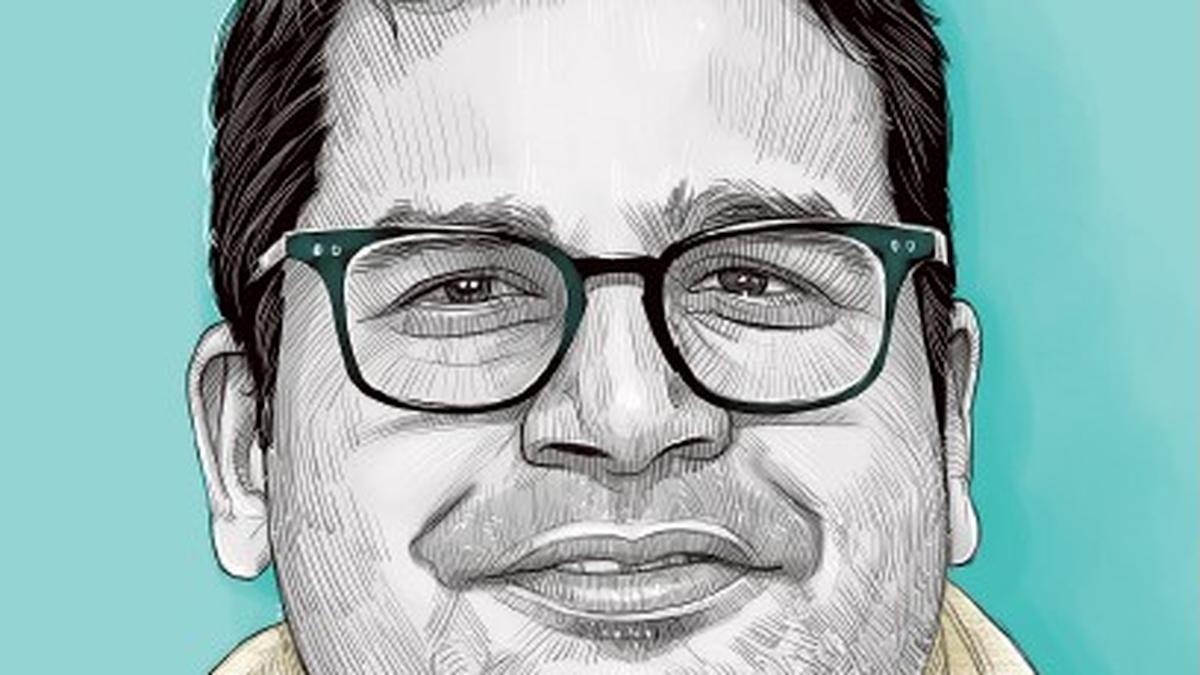Trigger warning: The following article has references to suicide. Please avoid reading if you feel distressed by the subject.
Eight days had passed since Y. Puran Kumar, an officer of the Indian Police Service (IPS) from Haryana had allegedly died by suicide. But in house 132 in Sector 24 in Chandigarh, his wife, Amneet P. Kumar, an Indian Administrative Service officer (IAS), said she had not yet accepted the loss of her husband. Amneet sat in stoic silence, greeting political leaders, colleagues, and even strangers who had come to show solidarity.
Amneet, who serves as Commissioner and Secretary in the Haryana government, had refused to allow the postmortem of her husband until two of the key accused in the case — Haryana Director General of Police (DGP) Shatrujeet Kapur and Rohtak Superintendent of Police (SP) Narendra Bijarniya — were arrested. Their names featured among the dozens of names of officials in the note that Kumar allegedly wrote before he died.
On the ninth day after Puran’s death, which occurred on October 7, Amneet gave her consent to the postmortem. She said in a statement to the press that the Chandigarh Police had assured her that they would “conduct a fair, transparent and impartial investigation” and that the Haryana government had committed to “taking appropriate action against any erring officials in due course of law.” Puran’s two daughters performed the last rites. The officer’s service uniform and cap rested briefly on his remains. A police contingent presented a guard of honour.

Despite the government’s promises, Amit Rattan, Puran’s brother-in-law and an MLA of the Aam Aadmi Party from the Punjab Bathinda (Rural) constituency, believes that the probe is being done “just for the sake of it.”
“The person who died was not just any ordinary person; he was a police officer who was working for the people of the country,” he said. “The message that has gone to our community, especially the youth, is that it doesn’t matter how capable or intelligent you may be if you belong to a Scheduled Caste (SC) community; even if you are a senior officer in the administration, you could be suppressed. They will be scared.”
Puran was a strong man, Rattan added. “He spent 25 years in service as a decorated and respected officer. So, what breaks a man like him?”

The Finance Minister of Punjab, Harpal Singh Cheema, after meeting Puran’s family, in Chandigarh. | Photo Credit: Shiv Kumar Pushpakar
A death and its aftermath
According to the police, Puran, 52, a 2001-batch officer serving as Inspector General of Police (IGP) in Sunaria, in Rohtak district of Haryana, was found dead at his private house in Chandigarh. When the tragedy occurred, Amneet was in Japan, as part of a delegation led by Haryana Chief Minister Nayab Singh Saini.
The next day, Amneet, who had rushed home, wrote to the Chandigarh Police demanding that a First Information Report (FIR) be registered and that Kapur and Bijarniya be named in it.
In her complaint, she wrote that while official narratives suggested death by suicide, she had seen how senior officials had repeatedly humiliated, harassed, and persecuted her husband.
“The eight-page suicide note, a document of a broken spirit, lays bare these truths and the names of numerous officers whose relentless actions pushed him to the edge,” she wrote. “This is not a case of suicide but a direct result of the persecution of my husband, an officer from the Scheduled Caste community, by powerful and high-ranking officers, who used their positions to mentally torture him...” She stated that her husband had tried to reach out to Kapur and Bijarnia and claimed that Kapur had “hushed up the conversation” and Bijarnia “intentionally did not answer” his call.

Amneet also said that before Puran’s death, a false FIR had been registered against a staff member of her husband, Sushil, “under a well-planned conspiracy”, to implicate him.
The next day, the police registered an FIR. However, Amneet said there were “irregularities” in the FIR and that only “diluted” sections of the Scheduled Castes and Scheduled Tribes (Prevention of Atrocities) Act, 1989, had been added. Consequently, the police added more stringent sections of the Act to the FIR. On October 10, the Chandigarh Police formed a Special Investigation Team to probe the case.
In the note allegedly written by Puran, accessed by The Hindu, there are not only names of officers, but also accounts of the alleged harassment. The note also stated that the representations and complaints Puran allegedly made against these officers were ignored.
The note read, “Continued blatant caste-based discrimination, targeted mental harassment, public humiliation, and atrocities by senior officers in Haryana since August 2020 [have now become] unbearable... All that I expected and requested vide various representations and complaints was equity of treatment as an IPS officer of the Haryana cadre with regard to certain issues. Instead of addressing the same, all my representations and complaints were ignored and are being used vindictively... against me...”
As political parties and social groups mounted pressure on the government to deliver justice, the Haryana government removed Bijarniya from his posting on October 11. They did not give him a new posting. Three days later, they sent Kapur on leave. They gave Om Parkash Singh, a 1992-batch IPS officer, additional charge as DGP.
After the incident, a committee called ‘Justice for Y. Puran Kumar’ was formed by outfits including the Kabir Mahasabha and the Ambedkar Sanyukt Sangharsh Morcha, which work for the empowerment of marginalised sections of society. The committee held a mahapanchayat (meeting) in Chandigarh to build pressure on the government to act against the accused.

O.P. Chopra, a member of this committee, who serves as president of the Ambedkar Sanyukt Sangharsh Morcha, said that Puran’s death highlights the injustices perpetuated against SCs. “His death is indicative of systemic failures and of societal discrimination against certain communities,” he said.
Allegations and counter-allegations
The drama that unfolded in Chandigarh following Puran’s death has its roots in Rohtak, 60 kilometres north-west of Delhi. Puran, who served as IGP, Rohtak Range, for about six months, was transferred as IGP, Police Training Centre, Sunaria, about a week before the incident.
Puran allegedly killed himself a day after a FIR was registered in Rohtak against his personal security officer, Sushil, on charges of extortion. The FIR, lodged by Praveen Bansal, a liquor contractor, said that Sushil, claiming to be a close confidant of the IGP, had demanded ₹2.5 lakh as monthly support in return for police protection.
The FIR, registered by Bansal at Rohtak’s Urban Estate police station, said, “He (Sushil) called me to meet with the IGP in June. He spoke to me in a threatening tone, saying if I wanted to operate a liquor business in Rohtak, I would have to make a monthly payment to the IGP, Y. Puran Kumar, or else he would file charges against me, along with other criminals and contractors, for liquor smuggling.”
The FIR added that the policeman had mounted pressure on the complainant to make the payment and had asked him to meet the IGP again and seal the deal. Bansal also submitted a pen drive containing the voice record and CCTV footage of his alleged meeting with Sushil on July 9. The same day, the police arrested Sushil.
Rohtak, which was the epicentre of violence and arson during the Jat reservation agitation in 2016, was briefly at the brink of a possible caste face-off after Puran’s death. Khaps and SC organisations held protests in the city, showing their support for the rival parties in the case. On October 12, after Bijarniya, a Jat, was transferred, representatives of various khaps, gram panchayats, students, and trade organisations gathered at Rohtak’s Mansarover Park, demanding that the officer not be made a scapegoat and that an impartial probe be conducted into the matter.
This happened a day after a group of protesters, comprising the Dalit Adhikar Manch, the Janwadi Mahila Samiti, the Centre of Indian Trade Unions (CITU), and the All-India Khet Mazdoor Union, took out a march in the city demanding a judicial inquiry into the circumstances that led to the death of Puran, which, they said, was an “institutional murder” and not a “suicide”.
Another police death
Two days later, Assistant Sub-Inspector Sandeep Lather, who was part of the team that had arrested Sushil in the extortion case, killed himself at his maternal uncle’s village, Ladoth.
In a note and a six-minute video, Lather expressed his frustration over what he said was an attempt to give a caste colour to the suicide of a “corrupt” officer, Puran.

The family members of ASI Sandeep Lather mourn his death, in Rohtak. | Photo Credit: ANI
“A businessman raised his voice against crime, but he is being pressured. No one wants to bring out his truth into the open. Politics is being played; the cremation is not being conducted. A big truth is being prevented from being out in the public domain. But I will not let this happen. The truth must come out. He had done wrong. He will bear the fruits of his wrongdoings,” he said.
In the four-page note, Lather, a resident of Jind’s Julana, alleged that Puran had been corrupt during his posting as IGP, Rohtak. Some IAS officers in Haryana were also corrupt, but a few honest officers had managed to curb it to an extent under the Bharatiya Janata Party regime, he claimed. He added in the video that the country would “wake up” when he “sacrifices himself on the path to truth”. He also described Bijarniya and Kapur as “honest”.
Rohtak SP Surinder Singh Bhoria described Lather as a “hard-working” and “honest” policeman, adding that he was like a “family member”.
Political concerns
On October 15, an FIR was registered in the case pertaining to Lather’s death after Chief Minister Saini visited his family and assured them of justice. A source claimed that four people, including Amneet, Rattan, and Sushil, who is in jail in the extortion case, were named in the FIR and that the charge against them was abetment of suicide. Lather’s wife, Santosh, is the complainant and said she does not have a copy of the FIR. The Rohtak Police spokesperson refused to comment on the contents of the FIR.

Haryana Chief Minister Nayab Saini meets the family members of ASI Sandeep Lather, in Rohtak. | Photo Credit: PTI
Meanwhile, the Chairman of the SC Department of the All-India Congress Committee, Rajendra Pal, posted a video on his social media account, raising questions over Lather’s death. He said that it smacked of a deep-rooted conspiracy since there seemed to be no valid reason for the policeman to have taken such an extreme step.
“Lather accused Puran Kumar of indulging in corruption. He himself was involved in the investigation of the corruption case, and he could have exposed the IPS officer by bringing out the truth with facts. The IPS officer was already dead and posed no threat to him. In his video, Sandeep did not make any allegations against the IPS officer’s wife and brother-in-law issuing any threats to him. So why did he [die by] suicide,” he asked.
On October 17, demonstrations were held on the issue. The national vice president of the Kisan Sabha, Inderjit Singh, said that the deaths of Puran and Lather were just the “tip of the iceberg”. He alleged that a network of organised crime is operating under the patronage of BJP leaders and bureaucrats, facilitating the accumulation of vast illicit wealth.

Relatives and locals mourn Sandeep Lather’s death in Rohtak. Lather also allegedly died by suicide. | Photo Credit: Shashi Shekhar Kashyap
The vice-president of the CITU in Haryana, Satbir Singh, accused the BJP government of resorting to caste polarisation tactics to cover up its activities. He demanded a high-level probe into the alleged nexus of police officers, political leaders, and criminals in the State, as well as a probe into the wealth of the top bureaucrats and leaders named in the note allegedly written by Puran.
“This episode has exposed the massive corruption within the bureaucracy and its unholy nexus with criminals and politicians. It has shaken the faith of the common man in the system. Only a high-level probe can restore that faith,” Singh said.
Those in distress or having suicidal tendencies can seek help and counselling by calling Sanjivini, Society for Mental Health. Telephone: 011-40769002 (Monday-Friday, 10 a.m.-7.30 p.m.) or any of the numbers found in this link

 1 week ago
12
1 week ago
12








 English (US) ·
English (US) ·